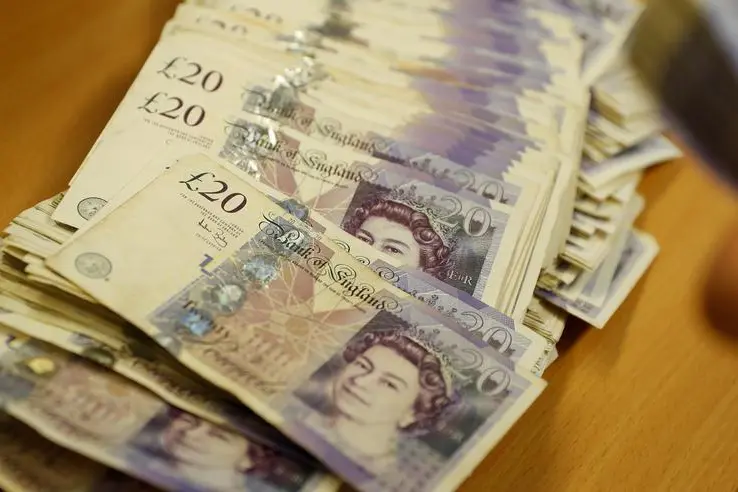PHOTO
LONDON - The pound held steady above $1.41 on Wednesday and hit a new one-month high versus the euro, holding on to recent gains ahead of closely-watched U.S. inflation data.
Sterling rose above $1.41 for the first time since February on Monday this week, due to a combination of dollar weakness, market relief over Scottish election results, lockdown easing measures, and the Bank of England raising its forecast for economic growth.
It has held on to these gains since then, reaching as high as $1.4167 on Tuesday, and was at $1.4142 at 1122 GMT on Wednesday.
Versus the euro it was up 0.2% at 85.745 pence per euro, having hit a new one-month high.
Market attention now turns to U.S. CPI data, due at 1230 GMT.
"Sterling is very closely associated with what’s happening in the risk environment, so if we were to see equity markets and global risk appetite being roiled by inflationary pressures then sterling will correspondingly struggle to make the gains we would otherwise have expected on the basis of supportive fundamentals," said Jeremy Stretch, head of G10 FX strategy at CIBC.
If inflation data is in line with expectations, sterling could move to the $1.4160-$1.4170 region, Stretch said.
ECONOMIC RECOVERY
UK GDP data for March beat market expectations, keeping investors optimistic about the country's economic recovery from the pandemic.
Although analysts said the data's immediate market impact was limited by the fact that it referred to a period when stricter lockdown restrictions were still in place, it helped support the market expectation for a strong recovery in the UK.
"The data today is consistent with a positive outlook for the pound," MUFG head of research Derek Halpenny said in a note to clients.
"GBP has underperformed in Q2 to-date, being the 2nd worst performing G10 currency. We see scope for catch-up with the markets concluding the BoE outlook is too pessimistic leading to sooner taper speculation and the prospect of short-term rates drifting further higher, helping support GBP."
The Bank of England slowed the pace of its trillion dollar bond-buying programme on Thursday, but stressed it was not reversing its stimulus.
Separate trade figures on Wednesday showed Britain imported more goods from non-EU countries than EU countries during the first quarter for the first time since records began in 1997.
(Reporting by Elizabeth Howcroft) ((Elizabeth.Howcroft@thomsonreuters.com; +44 02075427104;))





















